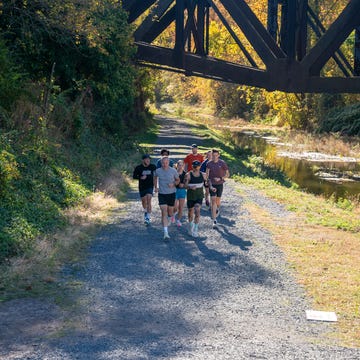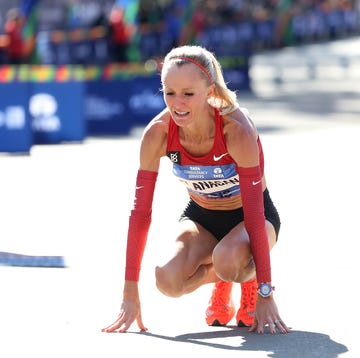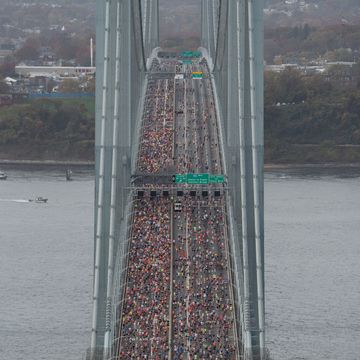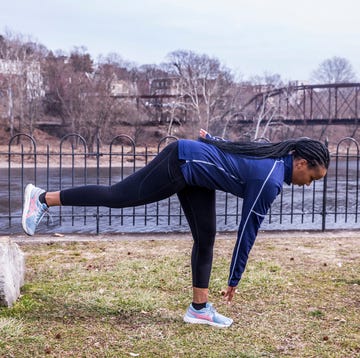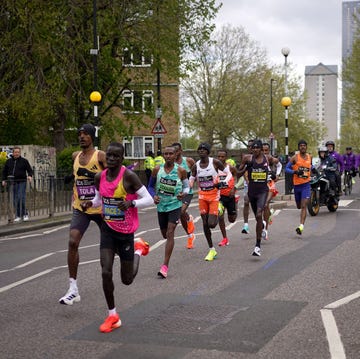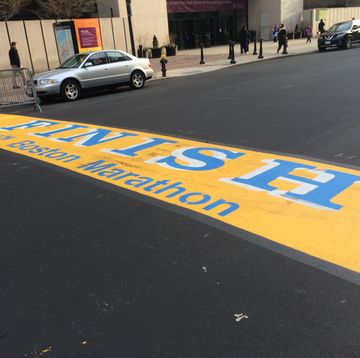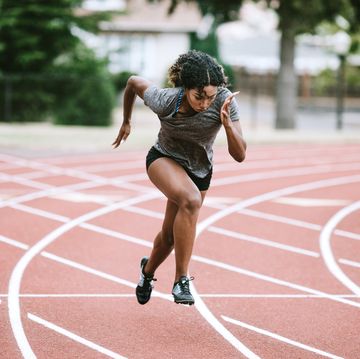Alisha Williams knows that nothing is guaranteed. Injuries and sickness are just two of the anything-can-happen negatives capable of derailing a runner's best-laid plans without notice. But Superstorm Sandy was not a contingency that she had braced for.
That presented a conundrum for Williams, a track-first woman whose coach, Scott Simmons, has made her a once-per-year marathoner. She's a member of the American Distance Project, yet she works 40 hours per week as a full-time accountant for Westmoreland Coal, an energy company headquartered in Englewood, Colo., which means her athletic life is quite regimented.
Most of the 90 to 110 miles she logs per week are run in the mornings before work, beginning at 5:30 a.m. Second runs, physical therapy and massage come either after work or during her lunch break. Although her bosses are flexible and supportive of her running, extensive time off for travel to competitions is not feasible.
So when the hurricane ravaged the East Coast and forced the cancellation of the New York City Marathon, which was scheduled to be her second turn at the distance, Williams' inclination was to acknowledge that the circumstances stunk and then move on.
"Our first thought was to just scrap it," Williams says. "But after three days, I had a hard time with not using all of that fitness."
Running in the Cold?
She was unsure of the quality of the field in Philadelphia, and with all of her time off used up, travel to the Yokohama Women's Marathon in Japan was out of the question. Running Houston in January would have meant trying to hold a taper for two months and would have cut into prep for the 2013 track season.
So Williams settled on the California International Marathon in Sacramento on Dec. 2. Despite a driving rainstorm on race day, she ended up winning the race in 2:34:58, 11 seconds faster than her debut at the 2012 Olympic trials marathon in Houston and the 19th-ranked time in the U.S. in 2012.
"Originally, my goal was to see how fast I could run, but that went out the window with the torrential downpour and 30-mile-an-hour winds," Williams says. "Then winning became the ultimate goal. To win a marathon is a really great accomplishment, and I am really glad that I will always have that."
Marathon training has been a huge boost to Williams' efforts at shorter distances. In March she finished second at the U.S. 15K championships in Jacksonville in a personal-best 50:01, and then she clocked another PR on the track, winning the 5,000m at the Stanford Invitational in 15:09.73, an "A" qualifier for the world championships and the fourth-fastest American time of the year through early August. A stress fracture in her left foot kept her from pursuing a spot in Moscow and curbed her running altogether until July.
With the track season lost, it has come time again for Williams' one marathon of the year--another shot at New York. "I think about New York and I get that nervous excitement in my stomach," Williams says. "I don't know what a realistic goal is yet, but to do it here would be my dream race."
Essential Workout
WHO: We may earn commission from links on this page, but we only recommend products we back
WHAT: Cut-down long runs, 18–24 miles, which get faster every 6 mile
WHY: To build strength and condition her body for extended periods of hard running
WHEN: Once per week, usually on a weekend
THE DETAILS: During track season Williams stops at 18 miles; for marathon training she gets up to 24. After a 1-mile warm-up at 8:00 pace, she starts at roughly 7:00 pace and drops the pace every 6 miles, ending with the last 3–6 miles at 5:50 pace. Ever the accountant, Williams points out that her exact paces depend on how much rest she has had since her last hard session and whether she's at altitude. She uses both a Garmin and a Polar GPS watch to audit her pace.
"Long runs pretty much changed my career. I never realized how much strength was needed to run a good 5K and 10K until after I ran the marathon. I used to have this notion that once you ran a marathon, there was no going back to the track. I think people have proven that it isn't true, and many people actually run better on the track after training for a marathon. In my first 5K after the marathon, I PRd by 21 seconds."


